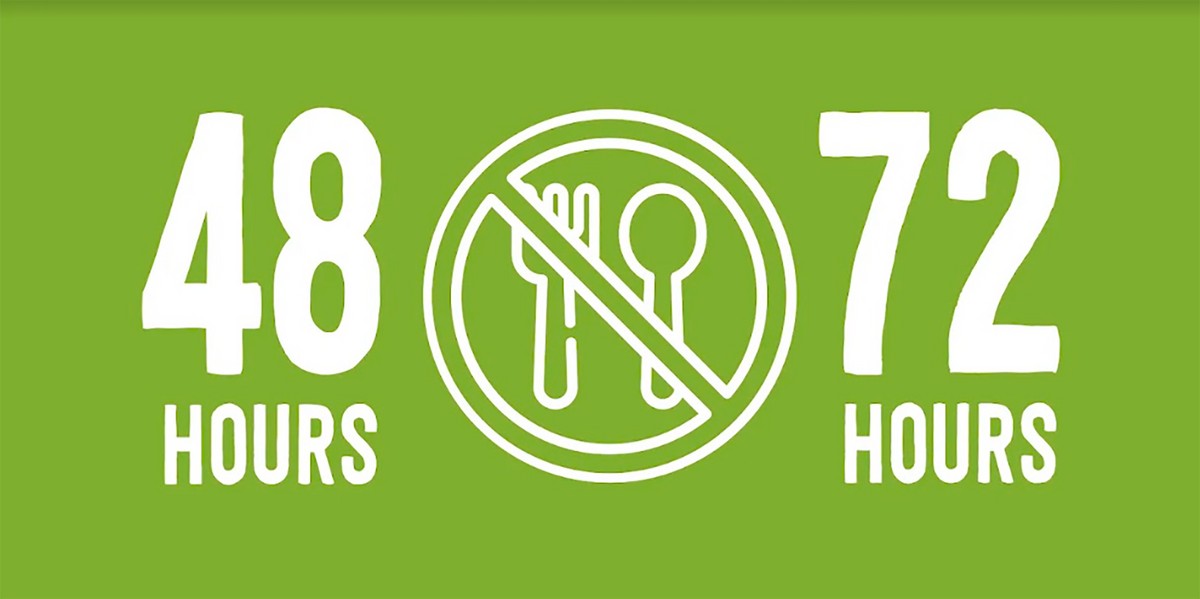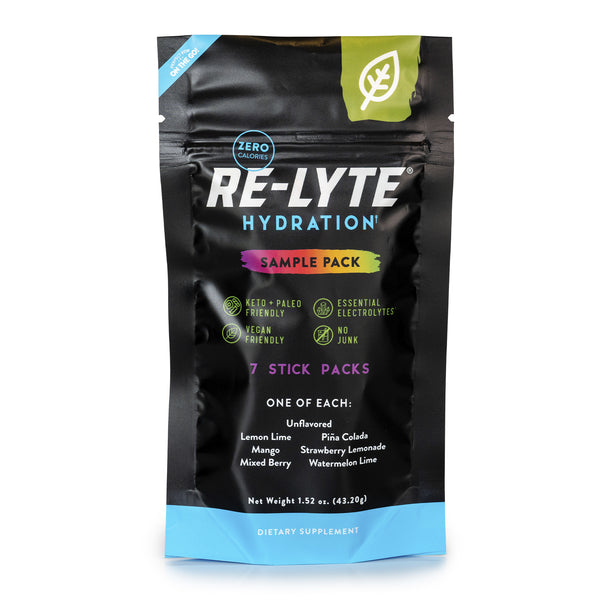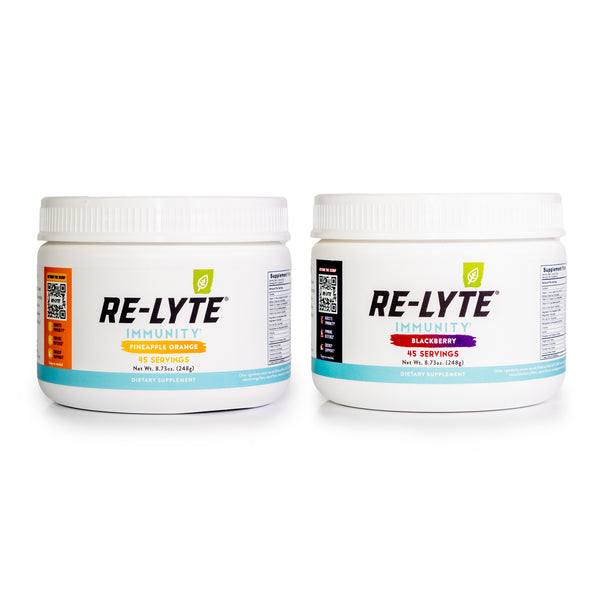48 Hour vs. 72 Hour Fast

View This Blog's Web Story Here
If you're living a healthy lifestyle – or maybe you're at least healthy-adjacent – it probably seems like everyone you know is fasting for somewhere between twelve and 2,000 hours.
Intermittent fasting – typically waiting 12 to 18 hours between meals – is a simple way to make fasting a consistent pattern of eating that quickly becomes habit. It's gaining a lot of traction in popular culture and getting more and more people to ask about the benefits of long-duration fasting.
Less Is Not More
Until you're used to it, two or three days without a meal sounds like a long time to wait. You'll feel hungry, for sure, but the benefits make the long days without food more than worth it. Keep in mind that a fast that is well-planned and done with the right motivation can be downright pleasant. Perception makes all the difference.
Fasting for more than twenty-four hours allows the body to better cleanse and detox. Fasting over a day helps the body’s organs to rest. With no food coming in for the body to digest and dispose of, the body’s digestive organs get a vacation. (They may not be on the beach, sipping mimosas, but they’re thankful for the time off). This makes room for other internal systems, such as the liver, to prep the body for detoxification.
Consistent intermittent fasting allows your digestive system a short rest, but it doesn’t give your body the reboot a long-duration fast will.
48 Hours for Fat Fuel
Forty-eight hours of fasting is a solid goal for a long-duration fast. It's enough time for your body to burn its stores of sugar and shift into ketosis, where the real fat-burning fun begins.
Ketosis is a state in which the body has depleted its stored levels of glycogen (carbohydrates), and has moved to burning fat to make substances called ketones which the body can use for fuel. People starting a keto diet typically fast for forty-eight hours to get into ketosis – though studies so far show it can take 20-48 hours for different bodies to make the shift.
Fasting for forty-eight hours is an adequate time for rest, cleansing, and just enough time for the body to start burning fat – and it's also a great warm-up round for a longer fasting challenge.
72 Hours for Regeneration
People who get a taste for fasting tend to push for a full 72-hour experience. Fasting for seventy-two hours gives your body all the benefits of the shorter 2-day cleanse, with a lot more time to enjoy the benefits that come along with a ketogenic state.
Fasting has been shown to increase insulin sensitivity, aid in weight loss, reduce inflammation, and even promote mental clarity. With time in ketosis, our cells use a process called autophagy to remove metabolic waste from cells. Weak or sick cells are targeted, and the body is able to recycle immune cells that are old or damaged and even help create new white blood cells by stimulating stem cell activation.
So do your body a favor and give it a rest from its daily tasks of consumption and digestion. At least once a year give it a chance to focus on something different, like slowing the aging process of your cells. Your body will thank you, and you will thank your body.
Ready to take your fast to the next level?
Comments (2)

I like your article so much, make a point out and easy understand. Thank you and please keep up the good works
———
Redmond Life replied:
Hi Grace! Thank you so much! We are grateful for you:)
NkdkJdXPPEBannerEnd

Your article was very helpful thank you












